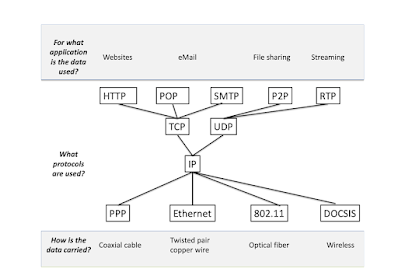Most of us can’t imagine living without the internet. It has become pervasive in so many areas of our lives. It’s where we get our news, where we go for our audio and video entertainment, how we do our banking, where we hold meetings, and of course where we connect to people we went to high school with (whether we like it or not).
This list is only the parts of the internet that touch us directly. There’s also all the software and hardware and enabling technologies that make up what are effectively the ‘pipes’ through which print-based content is delivered, video is streamed, and digital ads are bought and sold.
And why I am talking about this? Because once every 4 years I’ve been part of an in depth research study that maps and measures the economic impact of the internet in the U.S. Yes, that’s a tall order.
This year the full report comes to 179 pages -- including endnotes, appendix, and graphics. You can dig into the whole enchilada of economic analysis here.
In the meantime here are the top line numbers:
And some top line fun facts:
Creators have taken a large share of the production of content from media companies. We estimated in our last study in 2020 that while millions of people created some content worthy of the attention of an audience, there were the equivalent of about 200,000 people in the U.S. earning at the national average income. Today, we estimate that number to be 7.5 times as large, or 1.5 million full time equivalents.
This is a big deal.
And here's why: It has been 20 years since YouTube launched and ended up becoming a key platform for creator content, and 15 years since the term ‘YouTuber’ entered the media vocabulary. In the earliest days the landscape was largely populated by pets on skateboards, babies doing the darnedest things, and one-off viral videos. Today, digital creator media is in a clear position of dominance as creators thrive across not just on YouTube but on TikTok, Instagram, Pinterest, Snapchat, Twitch as well as the podcasting ecosystem.
This exceptional growth is due to a number of factors, including the virtually, barrier-free nature of digital content creation (e.g., via smartphone cameras, video-editing software, GenAI, etc.) and distribution in a landscape free of gatekeepers, the formalization and industrialization of the larger creator economy, and the closer relationships being formed between digital creators and digital audiences. Considered together, these factors form the foundation of the well documented shift of ad dollars away from legacy media to platforms, streamers, and digital publishers. And those ad dollars aren’t just from energy drinks and sneaker drop. Earlier this year Unilever’s new CEO, Fernando Fernandez stated that “…our spend on social [media] will move from 30% to 50% of our total spend. We will work with 20 times more influencers.” And nothing is more mainstream than Unilever.
Click here to read the full report “Measuring the Digital Economy: Advertising, Content, Commerce, and Innovation”. (And you may want to grab some snacks. It's a long read.)





























